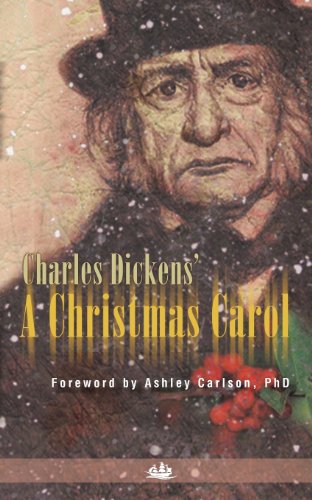All Nonfiction
- Bullying
- Books
- Academic
- Author Interviews
- Celebrity interviews
- College Articles
- College Essays
- Educator of the Year
- Heroes
- Interviews
- Memoir
- Personal Experience
- Sports
- Travel & Culture
All Opinions
- Bullying
- Current Events / Politics
- Discrimination
- Drugs / Alcohol / Smoking
- Entertainment / Celebrities
- Environment
- Love / Relationships
- Movies / Music / TV
- Pop Culture / Trends
- School / College
- Social Issues / Civics
- Spirituality / Religion
- Sports / Hobbies
All Hot Topics
- Bullying
- Community Service
- Environment
- Health
- Letters to the Editor
- Pride & Prejudice
- What Matters
- Back
Summer Guide
- Program Links
- Program Reviews
- Back
College Guide
- College Links
- College Reviews
- College Essays
- College Articles
- Back
A Christmas Carol by Charles Dickens
Don’t Judge a Book by its Age
A Short Review of Charles Dickens's A Christmas Carol
If a random person in the 21st Century were to hear of a book written in the 1800s, there might be a considerable lack of interest in reading it. However, Charles Dickens’s novel A Christmas Carol is a classic, but not simply because of faint levels of respect for aging works. Instead, this story has an engrossing plot, captivating descriptions, and true motifs for moral transformation.
There are innumerable copies, from both olden times and those more contemporary, of A Christmas Carol, and therefore several publishers of Dickens’s fictitious work. The specific version which I read was published by Edwards Brothers, Inc., in Michigan, and copyrighted in 2009. Originally written in 1843 and published by Chapman and Hall Publications, London, the book has been popularized across nations and even made into film adaptations. Reading the actual original story was a unique pleasure, as the classic story was reanimated through the author’s original intent of suspenseful repetitive wording, and descriptive language which, not being so long as to bore a reader, but also being articulated and well defined so as to construct scenes of frost covered brick alleyways in London, England, around Christmastime. The plot, which many are extremely well acquainted with, follows the miser Ebenezer Scrooge, who not only neglected to celebrate Christmas himself, but also expressed spitefulness to those who could not pay off investments. Ignoring his worker’s, Bob Cratchit, ill young child and poor family, more poverty across and beyond the city, and those who needed consolation, Scrooge was visited by the ghost of his late working partner, Jacob Marley, seven years to the day after his death, falling on Christmas Eve, and told to mend his ways, so as to avoid a miserable fate like his. Scrooge was consecutively visited by the Ghost of Christmas Past, (specifically of Scrooge’s), the Ghost of Christmas Present, and the Ghost of Christmas Future, where he saw how he had once had happiness, and of how there was much suffering in the world. This corresponds to the theme of the book, which is of how a moral transformation can occur when one sees others in need, or reflects on his wrongdoings in life with repentance. This internal drive to change for the better was demonstrated when Scrooge observed Bob Cratchit’s house with the Ghost of Christmas Present; at first, he commented on Cratchit’s slovenly behaviors and inefficiency, but after he regarded an ordeal with his family, he saw the tension he had caused them, and felt remorse. Second, the setting to the novel was also of surprising vitality, as Scrooge spent much time emotionally bonding somehow to both cheery and grim past memories, to the fire of hope in the darkness expressed by families in the present, and of the mysterious future. Also, however, the powers of the spirits were demonstrated through the setting, as, although they visited him during consecutive hours for three night total, the time of only one night passed by, as he awoke on Christmas Day. The unique timing, along with Scrooge being subconsciously connected with his own life as an outside viewer, gives the reader a sensation of these powers sent to aid him in, ironically, his time of need. Scrooge discovered that, though he formerly had materialistic possessions, it was him who was in need more than the poor. As a third and final point, the voice of the novel was fitting for the book: it was appealingly concise, and, though not having excerpts of description, gave it enough to give the reader a feeling differing from that of the bustles of work. This work was, in my opinion, highly enjoyable, and stood out from others.
Although some may cringe at the publication date of A Christmas Carol, the author was competent, and used an interesting setting and mood to demonstrate the prominent theme of charity and true Christmas spirit. Therefore, I would recommend this book to those who like fiction, or are intrigued by Scrooge’s transformation as a human being; before reading, don’t judge by insignificant factors.
Similar Articles
JOIN THE DISCUSSION
This article has 0 comments.
